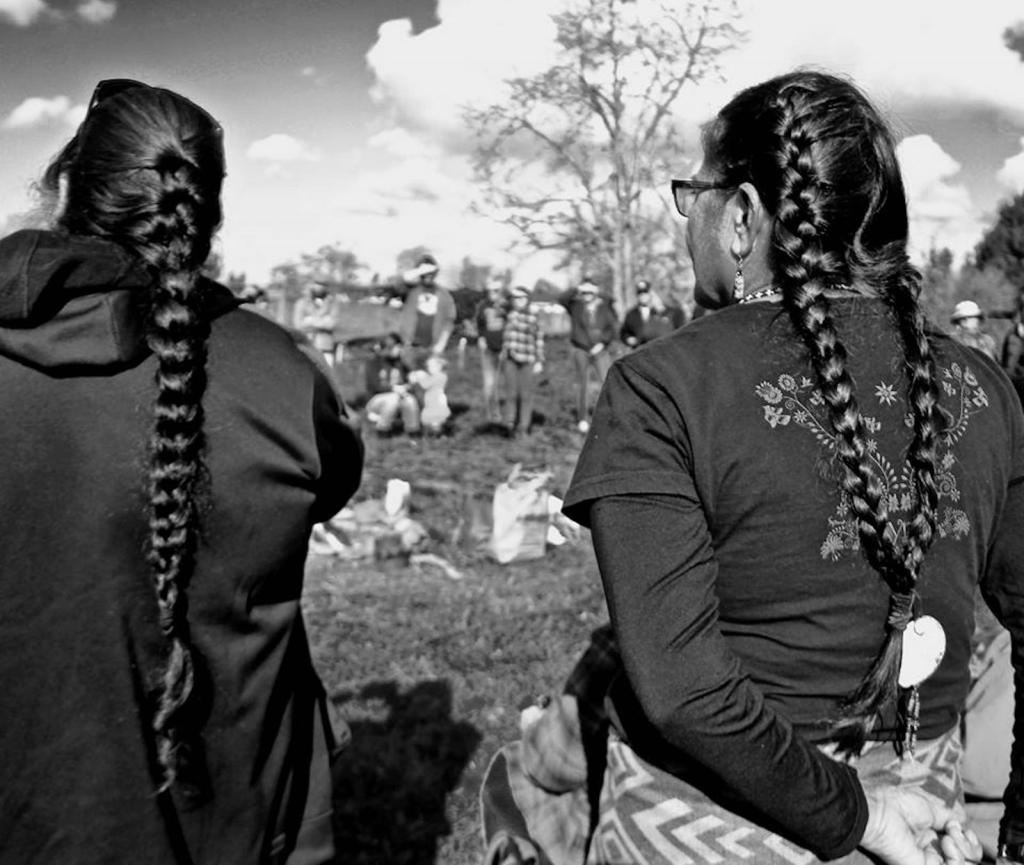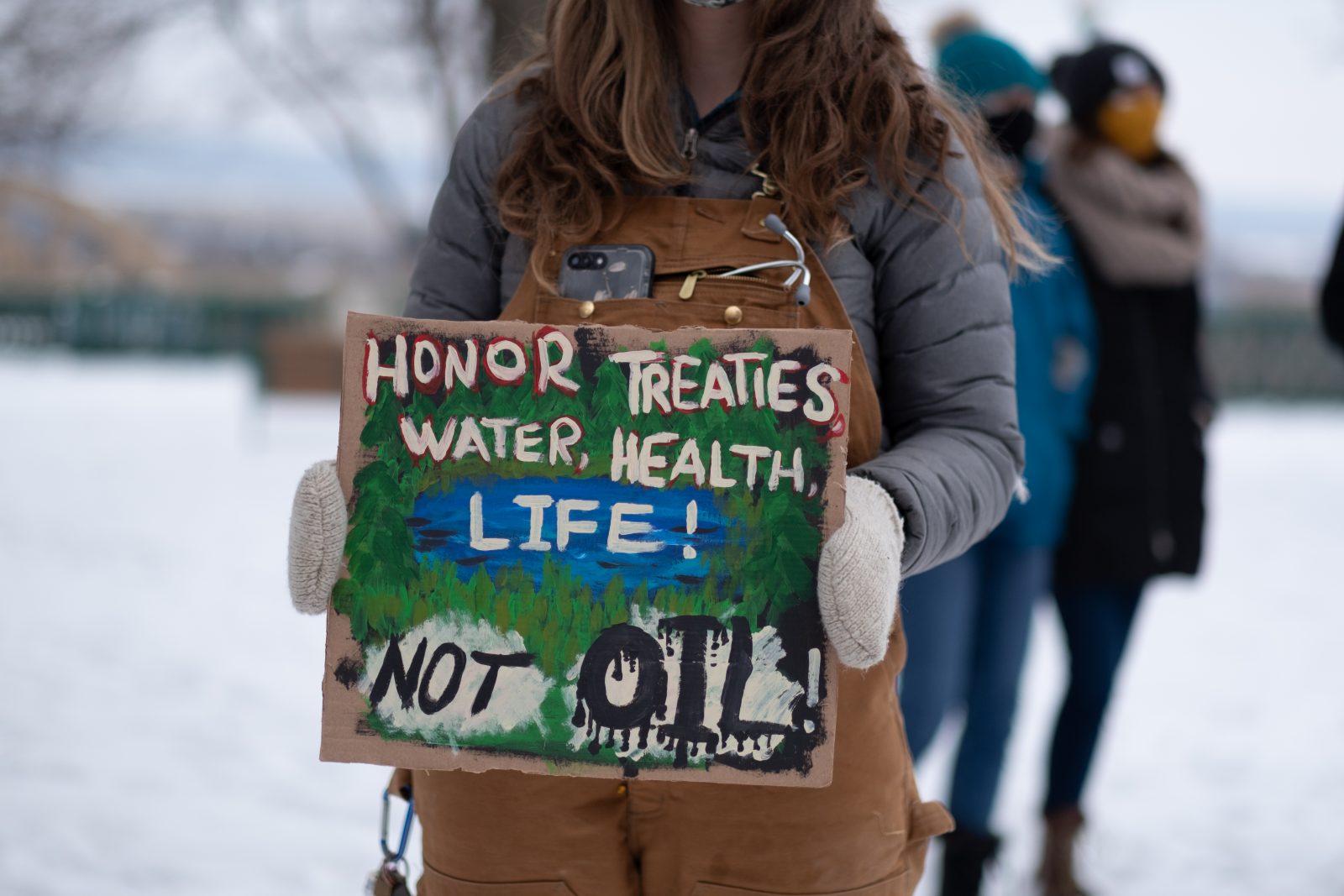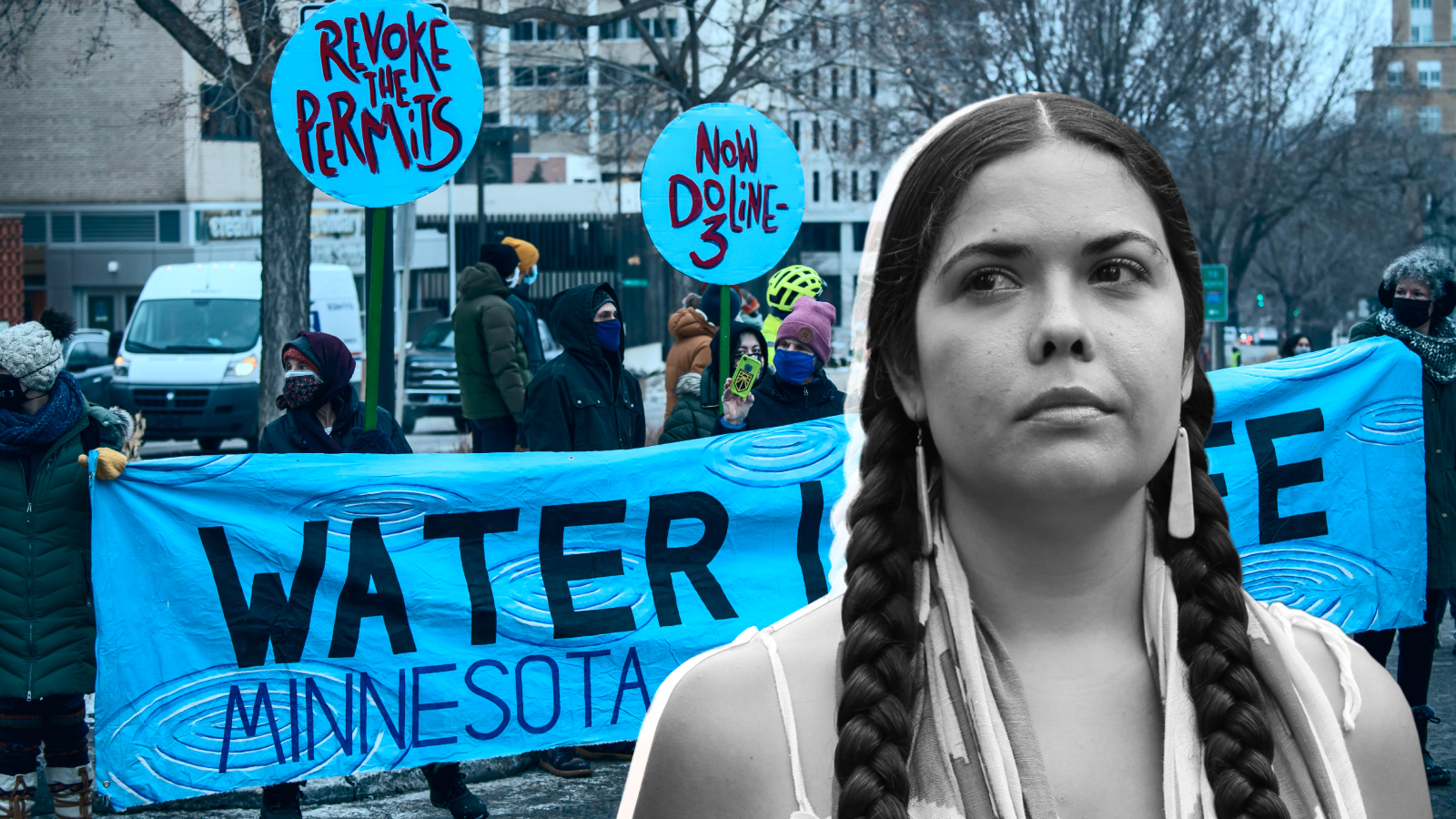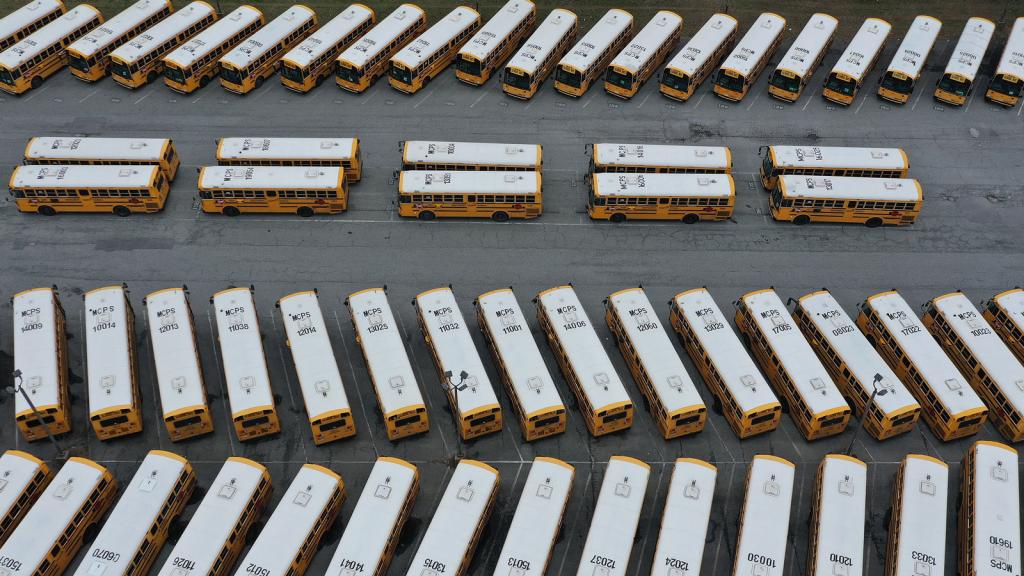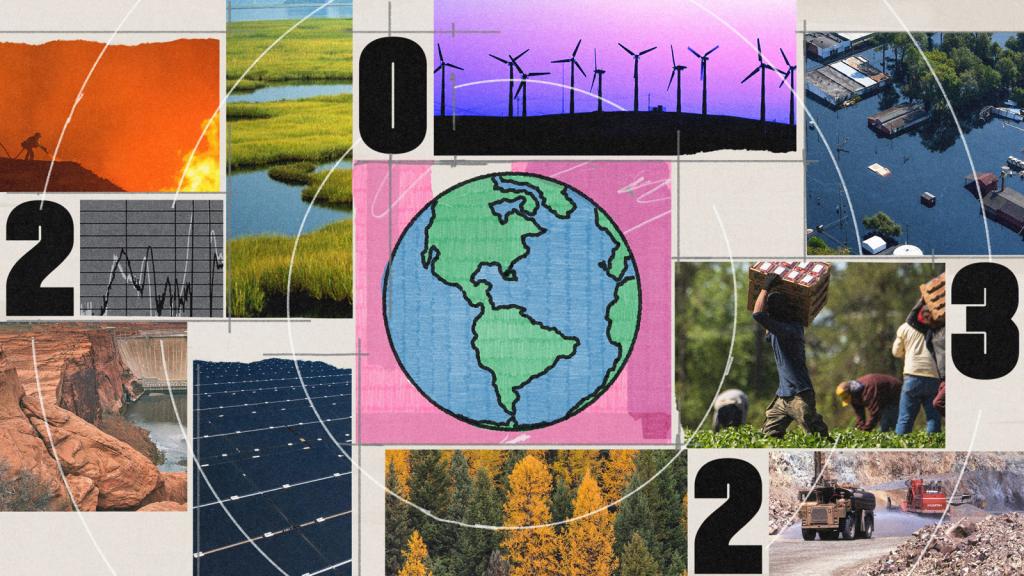Whitney Gravelle is the president and chairwoman of the Bay Mills Indian Community. David Arroyo is the chairman of the Grand Traverse Band of Ottawa and Chippewa Indians. Jamie Stuck is the chairperson of the Nottawaseppi Huron Band of The Potawatomi.
The Biden-Harris administration has been incredibly vocal in its commitments to rebuilding the federal government’s fractured relationship with Indigenous communities since before taking office. During his campaign, Biden committed to “restoring tribal lands, addressing climate change, and safeguarding natural and cultural resources.” And the White House has underscored that its recently unveiled American Jobs Plan is about much more than just fixing bridges and roads: it’s an opportunity to make America’s transportation and energy sectors cleaner and more resilient nationwide, while rectifying the harm done to Indigenous communities as a result of our reliance on fossil fuels.
Now, the administration’s bold commitments are being tested as Canadian officials pressure the White House to support Line 5, an aging oil pipeline that is operating illegally in the Great Lakes, the source of drinking water to more than 40 million people. The almost 70-year-old pipeline, owned by Canadian company Enbridge, has spilled 33 times since 1968 while transporting crude oil through the Straits of Mackinac, the waterway connecting Lake Huron and Lake Michigan. Over the years, it has leaked more than 1.1 million gallons of oil. In 1999 alone, 226,000 gallons of crude and natural gas liquids were spilled near the city of Crystal Falls after the pipeline ruptured, forcing 500 residents to evacuate.
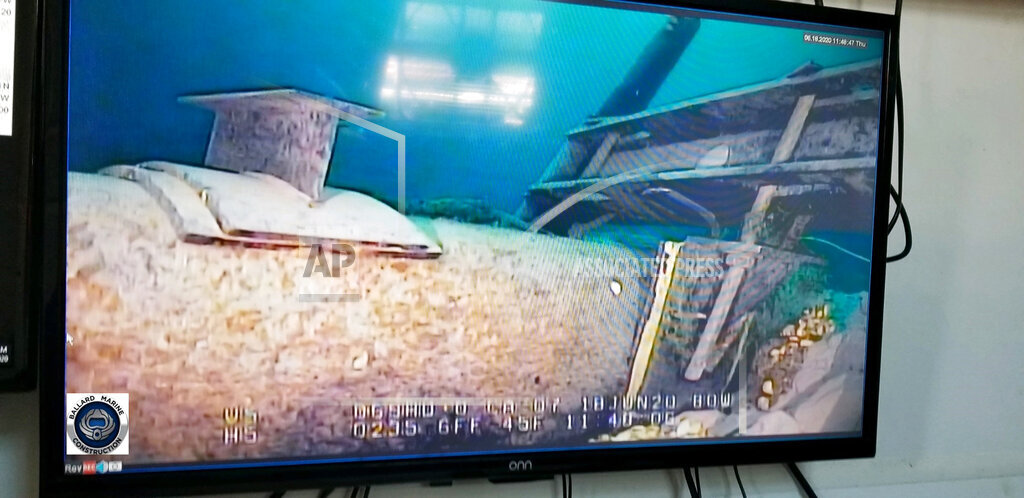
As the oil makes its way through the pipeline from Wisconsin to Ontario, it jeopardizes 290 interconnected rivers and streams as well as the Straits of Mackinac. This poses an existential threat to the Indigenous nations who have treaty-protected access to the Straits for their food and water supply, economic livelihood, and sacred cultural traditions.
Acting prudently to prevent another spill, Michigan Governor Gretchen Whitmer ordered the shutdown of Line 5 in the Straits by May 12, and she recently warned that the state would “make every effort to disgorge Enbridge of all profits unjustly earned from Line 5 while trespassing on state land.” Enbridge is refusing to comply and is now operating the pipeline in violation of Michigan law.
The company’s strategy, according to attorneys at Earthjustice, is to delay shutting down the pipeline until a proposed tunnel is built under the Great Lakes to house a replacement line. This could take at least a decade to build, and, if approved, would operate for a minimum of 99 years. This would be a disaster both environmentally and economically, as it would force Michigan to invest hundreds of millions of dollars in what will inevitably become a stranded asset as the rest of the country transitions away from oil and gas.
Whitmer should not have to bear this burden on her own. Enbridge is not only trespassing on state land, it is violating previously established land treaties between the U.S. government and tribal nations. It is ultimately the responsibility of the Biden administration to deliver on its promises to champion tribal sovereignty and honor treaty rights by unequivocally opposing Line 5.
According to an Enbridge report, only about 30 percent of the oil and gas transported through Line 5 will be used in the U.S., with 70 percent serving Canada. But neither country needs this oil to meet its energy needs, as experts at the Great Lakes advocacy nonprofit For Love of Water have stressed. The White House must send a clear message to Canada and abroad: Jeopardizing the health, natural resources, and treaty rights of Indigenous Americans to provide oil to a foreign country is in direct opposition to America’s economic, energy, and environmental justice goals.
The Great Lakes source 20 percent of the planet’s fresh water. Given the acceleration of climate change and the resulting increased likelihood of drought and water scarcity, the environmental, economic, and public health impacts of a future spill in these waters would be a catastrophe felt around the world. To entrust an oil company like Enbridge with another opportunity to endanger these critical waters, given the company’s abysmal safety track record and documented harassment of Indigenous peoples, is unacceptable.
After all, this is the same company jeopardizing the homeland of tribal communities in Minnesota with its Line 3 pipeline, and was responsible for one of the worst inland oil spills in U.S. history: 2010’s Line 6B rupture leaked over 1 million gallons of heavy tar sands crude into the Kalamazoo River and cost over $1 billion in recovery efforts.
The White House must not wait to publicly denounce Line 5 by supporting Governor Whitmer’s shutdown order and prohibiting construction of the tunnel replacement. For the Indigenous nations like ours whose treaty rights, food supply, and economic livelihoods rely on the health of these sacred waters, the consequences of an accident could not be more grave. As the ancient Anishinaabe saying goes, gibimaaji’igonaan nibi — it is water that gives us life.
